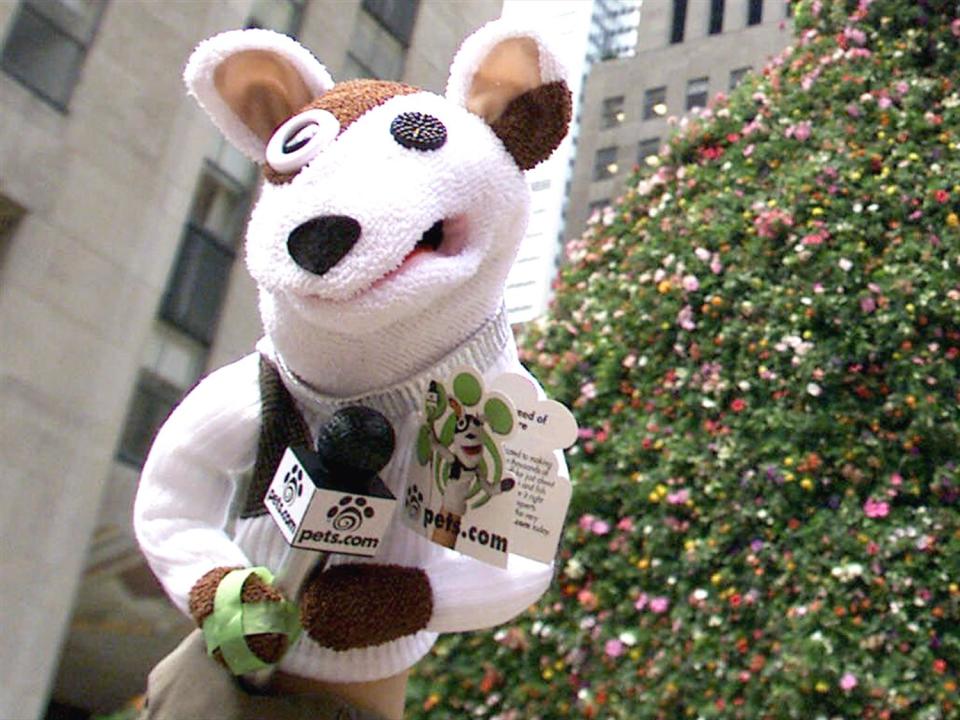Chewy founder: Don’t compare us to Pets.com
Online pet retailers are not all created equal. Just ask Ryan Cohen. The founder and former CEO of this year’s hot IPO, Chewy, takes issue with hedge fund manager David Einhorn’s recent comparison of the company he founded in 2011 with Pets.com, the poster-child of the dot-com bubble in 2000.
“That is an absolute crazy comparison,” Cohen tells Yahoo Finance’s “The First Trade.” “I think there’s really nothing in common between those two businesses.”
In his quarterly letter to clients of Greenlight Capital, Einhorn said, “For those that think the 2000 bubble was the big kahuna, consider Chewy, which went public in June 2019.”
Shares of Chewy (CHWY) are up about 50% from their $22 per share IPO price. In its first quarterly report as a public company, Chewy posted a narrower loss that was mostly in line with estimates. Revenue grew to $1.1 billion from $763.5 million a year ago. It also boosted its outlook for the year.
Simeon Hyman, global investment strategist at ProShares, said in an email to Yahoo Finance, “It's fascinating to see these strong results fresh on the heels of Amazon Prime Day, since Chewy represents the 'Amazon-ification' of pet care retail, as consumers shift their purchases from in-store to online."
Bigger, better, different
While Chewy may be growing in the face of increased competition from Amazon, Einhorn points to Chewy’s current debt and market value as reasons for concern.
“Over its life, Pets.com chewed through just over $200 million of investor capital,” Einhorn wrote. “CHWY has burned $1.6 billion and counting.”
Einhorn didn’t specifically say whether his fund is shorting – that is, betting against – Chewy.
Cohen argues that the company he founded in 2011 at the age of 26 is “a fundamentally bigger, better and different business today than Pets.com ever was.”
When Pets.com went public in February 2000, it was doing $6 million in business. It raised $82.5 million and was backed by Amazon (AMZN), but it went out of business just nine months later because of deep recurring losses.
“Chewy is doing $3.5 billion in sales and it’s burning through roughly $140 million in free cash flow,” says Cohen. “So comparing a $6 million company with a $3.5 billion company with really strong underlying profitability is really not a strong comparison.”
Cohen says Chewy’s cash burn went toward new customer acquisitions and future fulfillment centers, unlike Pets.com, which spent aggressively on advertising and marketing, including on those omnipresent-at-the-time sock-puppet commercials.

Cohen says Chewy could have been profitable years ago, but focused instead on growing its volume. “We have deferred profitability in the short term to maximize shareholder value over the long term,” he said.
Chewy has captured roughly $3 billion of the $70 billion pet-care business, and Cohen believes the company has a long runway before it peaks.
“I think we’ve really sewn the seeds and created a foundation that’s very scalable and capable of being a much larger business.”
Alexis Christoforous is co-anchor of Yahoo Finance’s “The First Trade.” Follow her on Twitter @AlexisTVNews.
Read more:
Why a weaker yuan forces the Fed to cut rates further
This is the No. 1 thing Snapchat has to overcome
Emerging markets 'are cheap right now': Analyst
Virgin Galactic is a 'concept stock' for investors
IBM is a 'zombie company': Analyst
Read the latest financial and business news from Yahoo Finance
Follow Yahoo Finance on Twitter, Facebook, Instagram, Flipboard, LinkedIn, YouTube, and reddit.

